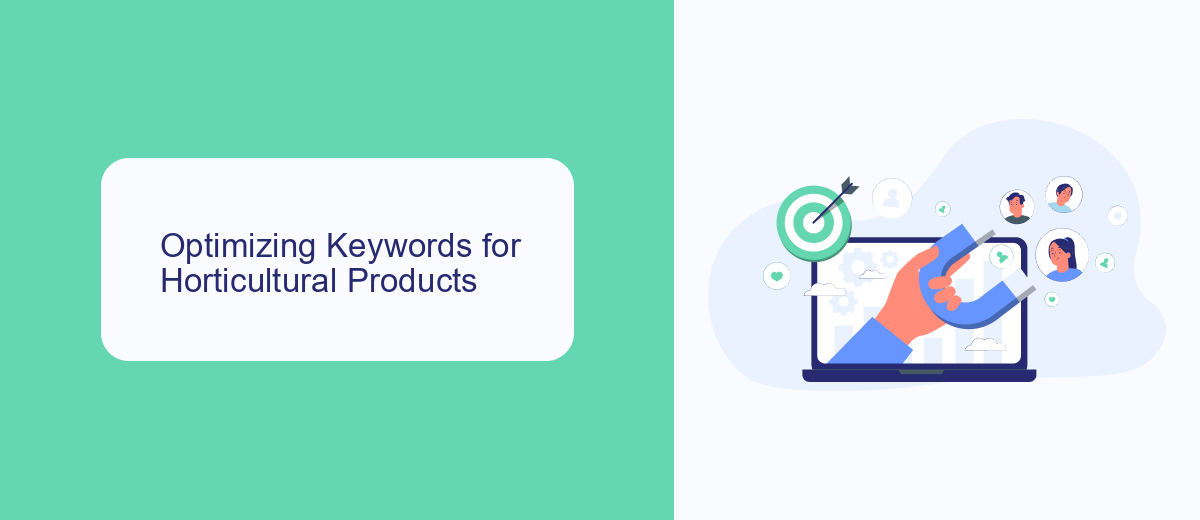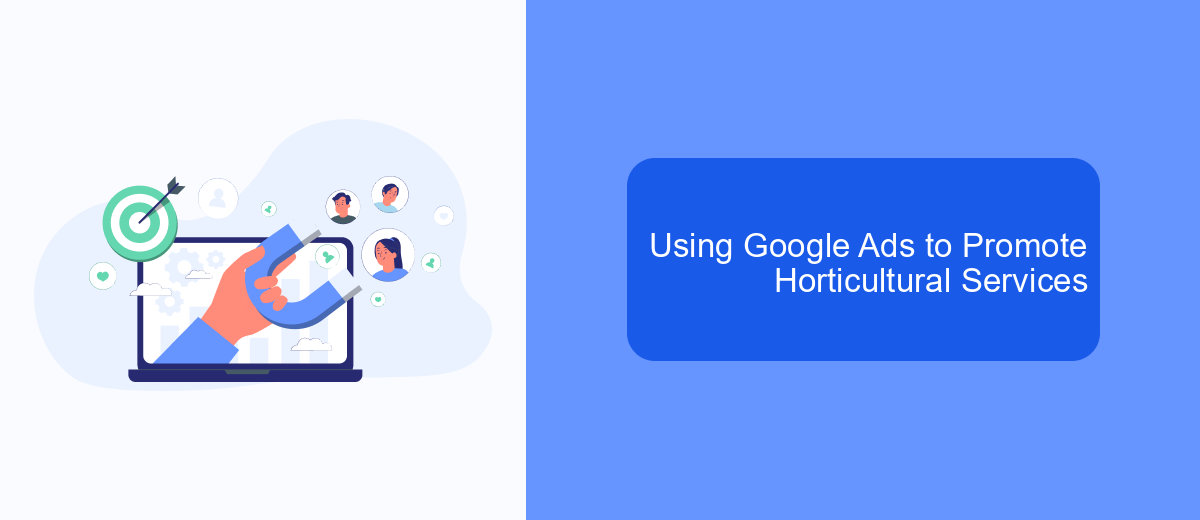In today's competitive market, horticulturists need effective strategies to reach potential customers and grow their businesses. Google Ads offers a powerful platform for promoting horticultural products and services. By leveraging targeted advertising, horticulturists can connect with a broader audience, increase visibility, and drive sales. This article explores how Google Ads can be a game-changer for your horticultural enterprise.
Google Ads Targeting for Horticulturists
Targeting the right audience is crucial for horticulturists who want to maximize the effectiveness of their Google Ads campaigns. By focusing on specific demographics and interests, you can ensure that your ads reach people who are genuinely interested in horticulture.
- Demographic Targeting: Narrow down your audience based on age, gender, and location to reach potential customers who are more likely to be interested in your horticultural products or services.
- Interest Targeting: Use Google's interest categories to target users who have shown an interest in gardening, landscaping, and related topics.
- Keyword Targeting: Select keywords that are relevant to horticulture, such as "organic gardening," "plant care," and "landscape design."
- Remarketing: Reconnect with users who have previously visited your website by showing them targeted ads as they browse other sites.
To streamline your targeting efforts, consider integrating Google Ads with SaveMyLeads. This service automates the process of capturing and managing leads, allowing you to focus more on refining your ad targeting strategy. By using SaveMyLeads, you can effortlessly sync your Google Ads data with your CRM, ensuring that you never miss an opportunity to engage with potential customers.
Optimizing Keywords for Horticultural Products

Optimizing keywords for horticultural products is essential for reaching the right audience and maximizing your ad spend. Start by conducting thorough keyword research to identify terms that potential customers are using to search for horticultural products. Tools like Google's Keyword Planner can help you find relevant keywords with high search volumes and low competition. Focus on long-tail keywords that are specific to your products, such as "organic vegetable seeds" or "indoor plant care kits," to attract more targeted traffic.
Once you have identified your keywords, integrate them strategically into your ad campaigns. Use them in your ad copy, headlines, and landing pages to improve relevance and quality scores. To streamline this process, consider using services like SaveMyLeads, which can automate data integration and help you manage your keyword lists more effectively. Regularly monitor and adjust your keyword performance to ensure you are getting the best return on investment. By continuously optimizing your keywords, you can drive more qualified traffic to your horticultural products and increase your sales.
Creating High-Impact Ad Copy for Horticulturists

Creating high-impact ad copy for horticulturists involves understanding the unique needs and interests of your target audience. Horticulturists are passionate about plants, gardening techniques, and sustainable practices. To capture their attention, your ad copy should be both informative and engaging.
- Highlight Benefits: Focus on the specific benefits your product or service offers to horticulturists. For example, emphasize how your product can improve plant health, increase yield, or save time in the garden.
- Use Relevant Keywords: Incorporate keywords that horticulturists are likely to search for, such as "organic fertilizers," "sustainable gardening," or "plant disease prevention."
- Include a Clear Call-to-Action (CTA): Encourage immediate action by using clear and compelling CTAs like "Shop Now," "Learn More," or "Get Started."
- Leverage Visuals: Use high-quality images or videos of lush gardens, healthy plants, or your product in action to make your ad more appealing.
- Test and Optimize: Continuously test different versions of your ad copy to see what resonates best with your audience. Use A/B testing to compare performance and make data-driven decisions.
Additionally, consider using integration services like SaveMyLeads to streamline your marketing efforts. SaveMyLeads can help you automate lead generation and follow-up processes, ensuring that you never miss an opportunity to connect with potential customers. By optimizing your ad copy and leveraging the right tools, you can effectively reach and engage with horticulturists, driving better results for your campaigns.
Using Google Ads to Promote Horticultural Services

Google Ads offers horticulturists a powerful platform to promote their services to a targeted audience. By leveraging the capabilities of Google Ads, horticultural businesses can reach potential clients who are actively searching for gardening, landscaping, and plant care services. This not only increases visibility but also drives quality traffic to their websites.
To maximize the effectiveness of Google Ads campaigns, it's essential to tailor ads to specific keywords and demographics. Utilizing ad extensions can further enhance the visibility of your ads by providing additional information such as contact details, service offerings, and customer reviews. Additionally, integrating Google Ads with analytics tools helps in tracking performance and making data-driven decisions.
- Identify and use relevant keywords related to horticultural services.
- Set up targeted ad campaigns based on location, demographics, and interests.
- Utilize ad extensions to provide additional information and increase engagement.
- Integrate Google Ads with SaveMyLeads to streamline lead management and follow-up processes.
By effectively using Google Ads, horticulturists can not only attract new clients but also build a strong online presence. Integrating with services like SaveMyLeads ensures that leads are captured and managed efficiently, leading to higher conversion rates and business growth.
Integrating Google Ads with Horticultural Software
Integrating Google Ads with horticultural software can significantly streamline your advertising efforts and improve overall efficiency. By connecting Google Ads to specialized horticultural software, you can automate data flows, track campaign performance in real-time, and make data-driven decisions to optimize your marketing strategies. This integration ensures that your advertising budget is utilized effectively, targeting the right audience at the right time, and ultimately driving more sales and customer engagement.
One of the most efficient ways to set up this integration is by using SaveMyLeads, a service designed to simplify the process. SaveMyLeads allows you to connect Google Ads with various horticultural software platforms seamlessly, automating lead management and data synchronization. This not only saves time but also reduces the risk of manual errors. With SaveMyLeads, you can ensure that your horticultural business remains competitive by leveraging the full potential of your advertising campaigns and maintaining a well-organized, data-driven approach.
- Automate the work with leads from the Facebook advertising account
- Empower with integrations and instant transfer of leads
- Don't spend money on developers or integrators
- Save time by automating routine tasks
FAQ
What is Google Ads and how can it benefit horticulturists?
How do I set up a Google Ads campaign for my horticulture business?
What are some effective keywords for a horticulture Google Ads campaign?
How can I track the performance of my Google Ads campaign?
How can I optimize my Google Ads campaign for better results?
Use the SaveMyLeads service to improve the speed and quality of your Facebook lead processing. You do not need to regularly check the advertising account and download the CSV file. Get leads quickly and in a convenient format. Using the SML online connector, you can set up automatic transfer of leads from Facebook to various services: CRM systems, instant messengers, task managers, email services, etc. Automate the data transfer process, save time and improve customer service.

